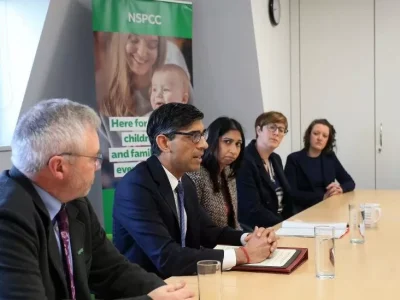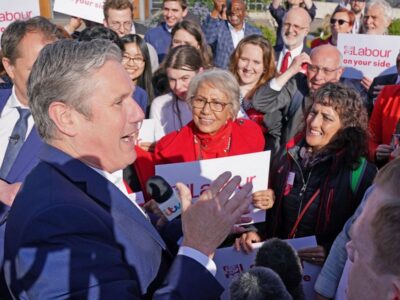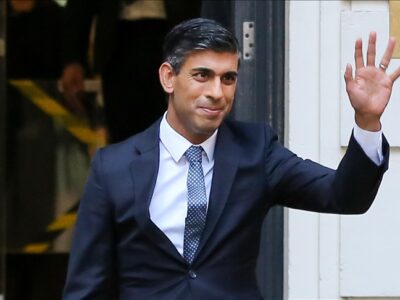It has felt like a week where politics has notched up a gear. Again.
The local, mayoral and police and crime commissioner elections in England and Wales are a week away. And the general election is imminent too. Quite how imminent? Texts zip around seeking the latest morsels of gossip. Opposition parties twitch in excitable anticipation that the election could be this summer. Some Conservatives ponder that that option might be better than clinging on, as critics may see it. Other senior figures in government leave me with the impression that they revere the privilege of governing and getting things done that they want to get done. And by that logic, you would put off the election until later in the year.
Back to this week
The prime minister held news conferences three days in a row, in three different countries. I was at each of them, the first in London, the second in Warsaw and the third in Berlin. For a leader who does not seek the public spotlight for its own sake that is notable. As was how long he was willing to take questions for from us reporters. It is the sort of thing politicians with people to persuade do. And the opinion polls suggest Rishi Sunak has plenty of folk to persuade. The Conservative promise to spend 2.5% of national income on defence by 2030 has been proudly and repeatedly trumpeted, advisers texting repeatedly to point out endorsements from the US and elsewhere. Labour are scathing about the Tories’ numbers. While this was the government making an announcement about planned levels of defence spending, what it really was – this close to an election – was a Conservative campaign pledge.
Labour lines
Meanwhile, talking of pledges, Labour publish what amounts to a manifesto for train travel – 26 pages on glossy paper, after months of work. Nationalisation is the controlling thought, although that word itself never actually appears. I hear every single sentence had been given the once over by senior party figures, with a last minute edit to remove a single word. Alas I do not know what that one word was. Whatever it was, it is an insight into Labour’s caution. Worrying about every word, taking nothing for granted. It is a policy distinct from the Conservatives, on a topic that matters to millions of people. And Sir Keir Starmer invited us along to its launch at the Hitachi train factory in Newton Aycliffe in County Durham. The carcasses of half-built carriages hover above the factory floor, propped up on stilts, the veins of their wiring dangling loose. Incidentally, there are some nuggets in “Labour’s plan to fix Britain’s railways” worth reflecting on. “Labour will set targets for modal shift to lower emissions from the transport sector,” the document spells out rather dryly, on page 16. A senior Conservative texts me to leap on what they see as a Labour instinct to be anti-car. And what exactly are these targets? I ask Sir Keir repeatedly, and do not get a direct answer. He says it is about making trains sufficiently attractive that we choose them over driving. Four days, four places, a blizzard of questions. The parties squabbling, almost hourly, over the small print of each other’s announcements. The election(s) near. The arguments sharpen. The scrutiny notches up.
![]()






